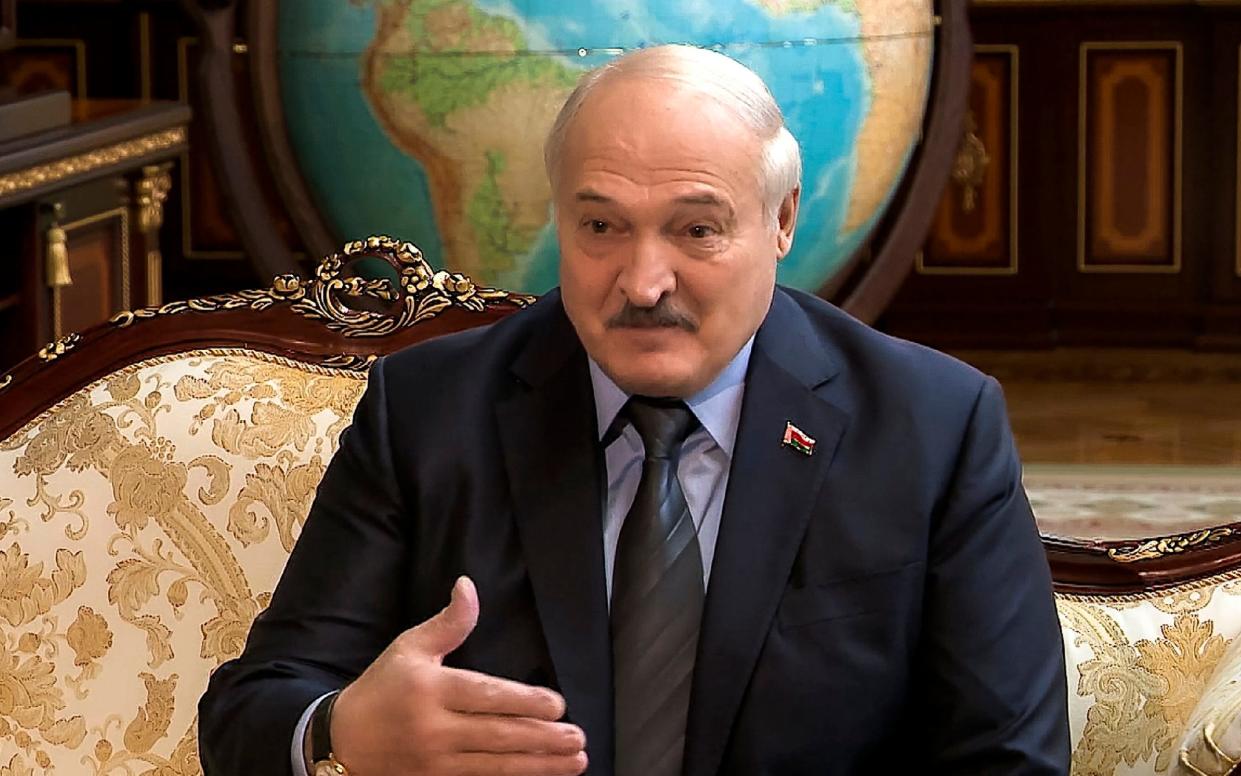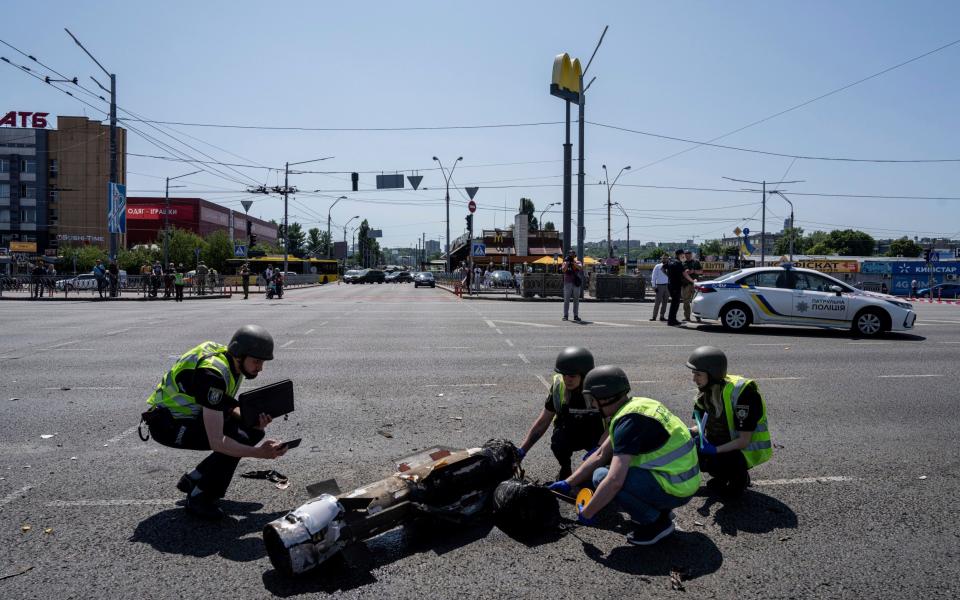‘There will be nuclear weapons for everyone if they join Russia-Belarus union’

Alexander Lukashenko, the Belarusian president, has said there will be “nuclear weapons for everyone” should they choose to join a Russia-Belarus union.
The statement came just days after the countries’ defence ministers signed an agreement allowing Moscow to deploy tactical nuclear weapons in Belarus.
Mr Lukashenko told reporters in Moscow that “the movement of the nuclear weapons has already begun”. The move, which is to be the first deployment of nuclear warheads outside of Russia since the fall of the Soviet Union in 1991, has been met with opposition in the West.
The former Soviet country has been one of Putin’s closest allies in the fight against Ukraine, already allowing Russia to maintain troops and weapons there.
Mr Lukashenko said in an interview aired on Russian state television on Sunday evening that it must be “strategically understood” that Minsk and Moscow have a unique chance to unite.
'Nuclear weapons for everyone'
“No one is against Kazakhstan and other countries having the same close relations that we have with the Russian Federation.
“If someone is worried ... (then) it is very simple: join in the Union State of Belarus and Russia. That’s all: there will be nuclear weapons for everyone.”
Mr Lukashenko went on to say he was expressing his own views and not those of the Kremlin.
Mykhailo Podolyak, an adviser to Volodymyr Zelensky, the Ukrainian president, said that the “nuclear” statements from Mr Lukashenko “directly indicate that the Russian Federation is deliberately ‘killing’ the concept of global nuclear deterrence and ‘burying’ the key Global Treaty on the Non-Proliferation of Nuclear Weapons”.
He wrote on Twitter on Monday: “This fundamentally undermines the principles of global security... There can only be one solution: a tough stance of nuclear states; relevant UN/IAEA resolutions; extensive sanctions against Rosatom; systemic financial sanctions against Belarus and ultimately against Russia.”
Kazakh president dismisses inivitation
Kassym-Jomart Tokayev, the Kazakh president, responded to Mr Lukashenko’s comments by dismissing the invitation to join the union.
Mr Tokayev’s office quoted him as saying on Telegram that he “appreciated his joke”, but that Kazakhstan was already a member of the Eurasian Economic Union, a broader trade bloc headed by Russia, and that no further integration was necessary.
“As for nuclear weapons, we do not need them because we have joined the Nuclear Non-Proliferation Treaty and Comprehensive Nuclear-Test-Ban Treaty. We remain committed to our obligations under those international documents,” he added.
On Sunday, the Belarusian defence ministry said that another unit of the S-400 surface-to-air missile system had arrived from Moscow.
The plan for nuclear deployment was originally announced by Putin, the Russian president, in an interview with state television on March 25.
Russia strikes Kyiv
Elsewhere Russia fired 11 missiles at Kyiv and the surrounding region on Monday morning in an unusual daytime attack on the Ukrainian capital, less than 24 hours after a night-time barrage of the city.
Sergiy Popko, the head of Kyiv’s city administration, said that Russia had struck at a time when “most residents were at work and on the streets”, as huge numbers of Kyiv residents piled into the capital’s metro system to shelter themselves from the attack.

Valery Zaluzhny, the head of the Ukrainian armed forces, said that Iskander-M and Iskander-K missiles had been fired at the capital, but were all destroyed by air defences.
Pictures showed debris which had fallen on the city, including a rocket fragment which had dropped onto a roadway.
A settlement in the eastern Dnipropetrovsk region also came under fire, leaving one person dead, as well as a village in Kharkiv which injured six people, including a pregnant woman.
Ukrainian officials also confirmed that Russian forces struck a military facility in an overnight attack on the western region of Khmelnytsky, in a rare admission of damage to military targets.
The Russian defence ministry said that its forces had attacked Ukrainian airfields and “all the assigned targets had been destroyed”.

 Yahoo News
Yahoo News 
